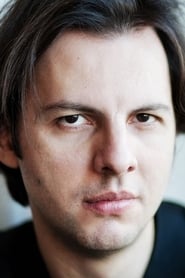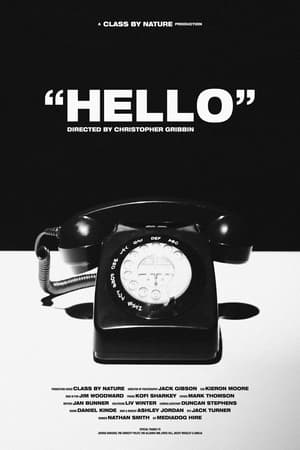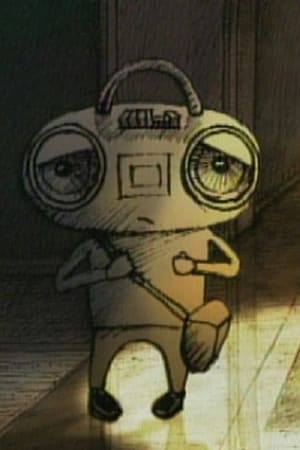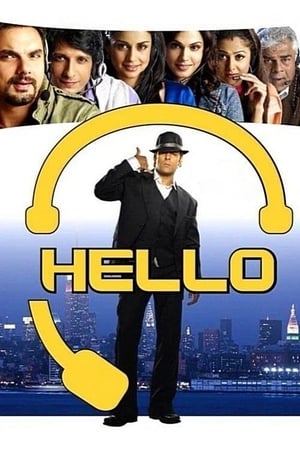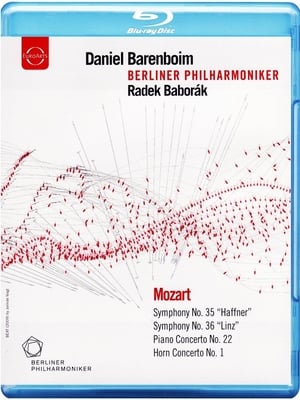

Mahler: Symphony No. 5(2021)
For Mahler, symphonies always were a means of interpreting the most convoluted philosophical problems that couldn’t be resolved verbally. The ambitious structure of the five-part Fifth Symphony spans from the Funeral March to the roaring finale. It is a forthright attempt to resolve the tragic conflict with the surrounding world. The brilliant fourth part of the symphony, Adagietto, resembles a beautifully mysterious flower that every conductor reimagines in their own style. As one of the twentieth century’s most influential maestros, Mahler redefined the conductor’s role. For him, the conductor is just as integral to his own musical works as they are to the composer. When a maestro steps onto the podium and opens the score, he recreates musical universes from scratch. Teodor Currentzis and the musicAeterna orchestra have performed Mahler’s symphonies around the world for many years. The Fifth Symphony has earned its place as one of the highlights of the cycle.

Movie: Mahler: Symphony No. 5
Top 2 Billed Cast
Self – Orchestra
Video Trailer Mahler: Symphony No. 5
Recommendations Movies
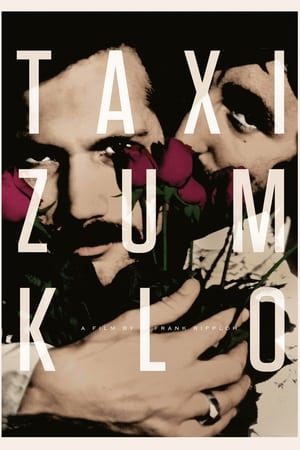 6.4
6.4Taxi to the Toilet(de)
Frank, a gay school teacher, has a very active sex life and an interest in making films. One evening, he meets Bernd and they become lovers. But while Bernd is attentive and caring, Frank gets bored and continues his polymorphously perverse ways.
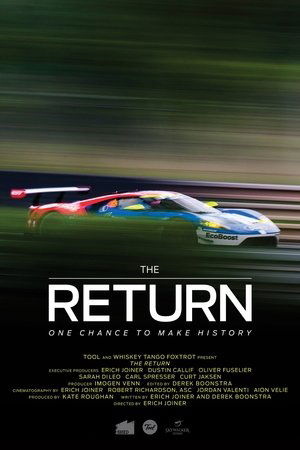 6.6
6.6The Return(en)
The Return is a 2016 documentary directed by Emmy Award winning director Erich Joiner chronicling Ford GT's return to 24 Hours of Le Mans after their 1966 1-2-3 victory.
 6.9
6.9Transformers: Titans Return(en)
After the Combiner Wars ended, Cybertron started to be rebuilt. However, an undead Starscream has been reincarnated as Trypticon, wreaking havoc around him. To combat this menace, Windblade gathers up a ragtag team of Transformers, including Optimus Prime and Megatron, to resurrect an ancient ally. And while some may be forever changed by the events, others may not emerge with their sparks intact.
 7.0
7.0SlugTerra: Return of the Elementals(en)
A new member has joined Eli and the Shane Gang! Junjie, once the protector of the Eastern Caverns, is a master of the slugslinging art of Slug Fu! But even with the power of five slingers, the Shane Gang find themselves in over their heads as they race across The 99 Caverns in search of the Legendary Elemental Slugs. The five Elementals are ancient slugs of great power, and the forbearers of all slugs found in SlugTerra today. In the wrong hands, they could bring Slugterra to the brink of destruction. So when an evil alliance starts hunting down the Elementals, Eli and his friends — old and new — take off in pursuit of the greatest threat their world has ever faced!
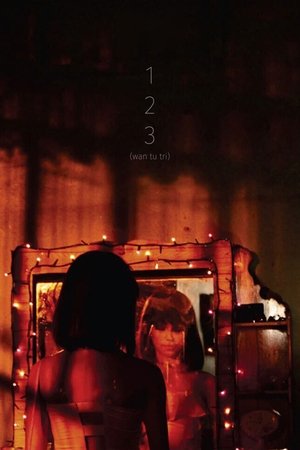 6.7
6.7Gasping for Air(tl)
When his sister disappears after leaving their home in hopes of singing stardom, Luis tracks her down and discovers the grim reality of her whereabouts.
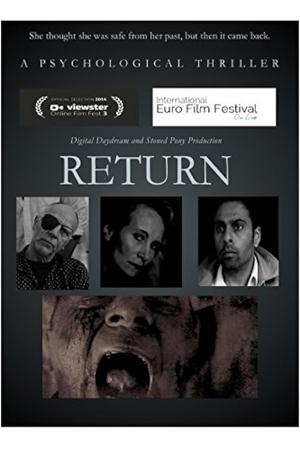 6.6
6.6Return(en)
A tale of terror. Cathy Reed has been institutionalized most of her life because of Schizophrenia, as a child her parents thought she was possessed by demons and had her exercised by priests. Medical science saw different. Now decades later Cathy is freed, relocated to her own flat and given a chance to be independent. Once alone things are not what they all seem and when her nightmares turn real she questions her state of mind before she is left to face her demons.
 7.0
7.0Mothra vs. Godzilla(ja)
Journalists Ichiro Sakai and Junko cover the wreckage of a typhoon when an enormous egg is found and claimed by greedy entrepreneurs. Mothra's fairies arrive and are aided by the journalists in a plea for its return. As their requests are denied, Godzilla arises near Nagoya and the people of Infant Island must decide if they are willing to answer Japan's own pleas for help.
Hello?(en)
After a sleepless night Lara steals her husband's phone to make a call. When she's not met with the reception she expected, things take an even darker turn.
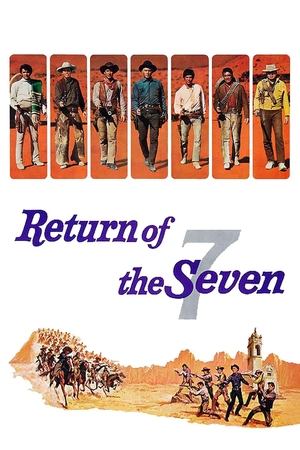 6.1
6.1Return of the Seven(en)
Chico, one of the remaining members of The Magnificent Seven, now lives in the town that they (The Seven) helped. One day someone comes and takes most of the men prisoner. His wife seeks out Chris, the leader of The Seven for help. Chris also meets Vin another member of The Seven. They find four other men and they go to help Chico.
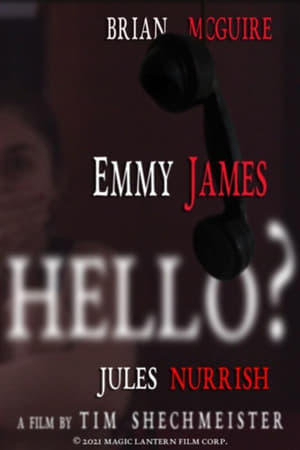 5.7
5.7Hello?(en)
An actress visiting Hollywood for the first time books a dream apartment on AirBnB, only to discover a horrifying presence is staying there with her.
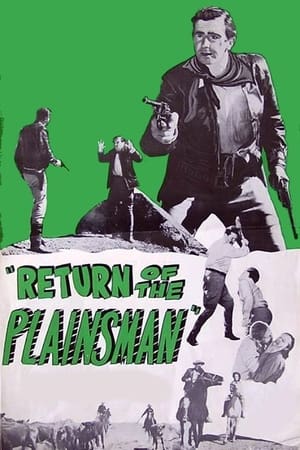 4.8
4.8The Phantom Stockman(en)
Kim Marsden inherits a cattle station near Alice Springs after the death of her father. Kim becomes convinced her father was murdered. She sends for a legendary local bushman called the Sundowner, who was one of her father's best friends.
Hello(en)
When Max (Eric Stoltz), urged on by "Risk Management," a self-help book for the hapless, decides to approach his fellow ferry-commuter Rory (Susanna Thompson), he hopes simply saying hello might change his life for the better. But Rory only accepts contact by contract. Max finds he can play along. As the two negotiate a whirlwind relationship on paper, Rory slowly lets down her guard; but when her unresolved personal life intervenes in the form of Donald (Kevin Tighe), Max must manage a little more risk than he bargained on.
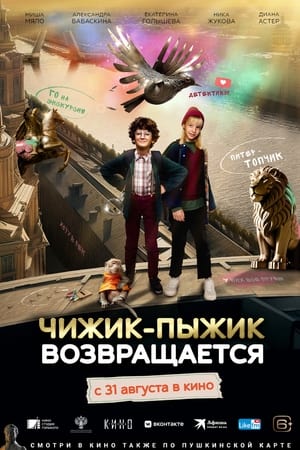 8.1
8.1Chizhik-Pyzhik Returns(ru)
Arriving on an excursion to St. Petersburg, classmates Dana and Lyova witness the theft of the famous "Chizhik-Pyzhik". According to legend, if you make a wish and get a coin on the pedestal of the monument without dropping it into the water, it will surely come true. But "Chizhik" is gone. Does this mean that the guys will never be able to realize their dreams and Lyova's parents will still get divorced, and Dana will not become a famous blogger? Courageous schoolchildren rush in search of kidnappers, hiding from teachers, parents urgently summoned from Yekaterinburg, policemen and even from themselves.... "Peter the Great".
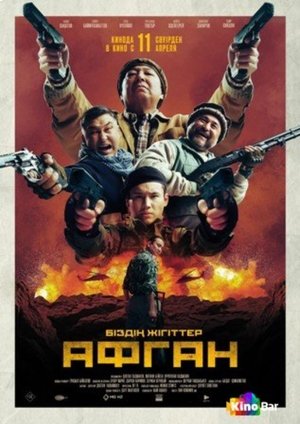 7.3
7.3Afgan(kk)
A large number of drugs enter Kazakhstan from Afghanistan. To stop this, a special group must be created. The Ministry decides to send intelligence officer Oraz and two of his friends there, who participated in the war in Afghanistan and know the country well. The three veterans are joined by a young scout who despises the "old men". They will have to solve the drug problem, despite the conflict between two generations.
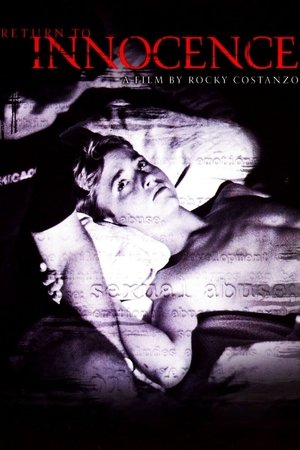 6.8
6.8Return to Innocence(en)
A searing legal drama that centers on a highly credentialed child psychologist whose life is shattered when he's accused of sexually assaulting a young boy he's been treating.
Similar Movies
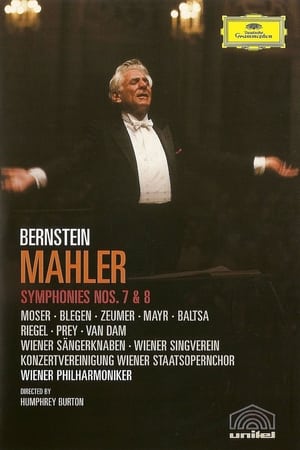 0.0
0.0Mahler - Symphonies Nos. 7 & 8(en)
Leonard Bernstein made these recordings during his wonderfully productive collaboration with the Wiener Philharmoniker in the mid-1970s when he was at the peak of his career. Humphrey Burton's direction is, as always, very fine, giving the viewer/listener both the larger picture and highlighting individual soloists, players or groups of musicians and, of course, the maestro. The video and audio tracks show their age, but are quite acceptable even for today's standards. Bernstein's Seventh is everything one could desire: dark and spooky, highly sensual, but also structurally strong and assertive where needed. Bernstein's reading does not gloss over breakdowns in tonality and the foreshadowing of later musical developments.
 0.0
0.0Beethoven: Piano Concertos 1-5 - Uchida, Rattle(en)
There is hardly a better way to approach Ludwig van Beethoven than through his piano concertos. Beethoven’s own instrument was the piano, and in his improvisations – which made him the darling of the Viennese salons – he merged virtuosity and unbridled expression. The piano concertos give a clear idea of these performances. At the same time, they are prime examples of Beethoven’s ability to create large orchestral works with seemingly endless arcs of tension. The complete recording of all five works with Mitsuko Uchida and Sir Simon Rattle was one of the most spectacular projects of the Berliner Philharmoniker during the Rattle era – and at the same time the highlight of the collaboration between the orchestra and the pianist, which began in 1984.
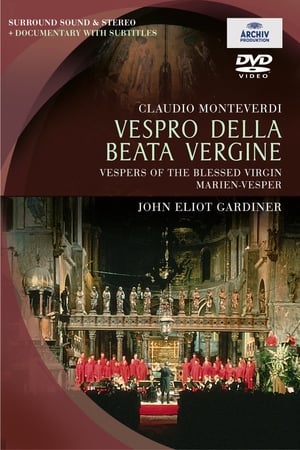 0.0
0.0Vespro Della Beata Vergine(en)
This large-scale live recording (Gardiner's second) was made in Venice's St Mark's Basilica. It captures the drama as well as the ceremonial aspect of the work, despite sometimes cloudy recorded sound.” Gramophone Classical Music Guide. “Gardiner's second [recording of the Vespers], spectacularly recorded live in St Mark's, has a punchy choral sound, near-operatic solo singing (Bryn Terfel and Alistair Miles are among the basses), emphatic enunciation, big contrasts and deliberate exploitation of the building's spaces. Its outright theatricality sets it apart from other performances.
 0.0
0.0Bruckner: Symphony No. 7(en)
In Anton Bruckner’s 7th Symphony, the listener encounters a music characterized by great spaciousness and profound solemnity, a music which speaks of grief and lamentation, but also of their transcendence. With its monumental architecture and intensity of sound, the symphony has moved listeners ever since its triumphal premiere in 1884. The Guardian calls Daniel Barenboim’s London interpretation “Tremendous … Barenboim and the Staatskapelle seem to have this work in their systems, and the overall impression was of music unfolding organically at its own pace rather than of a work being self-consciously interpreted or led.” Anton Bruckner Symphony No. 7 in E major (original version) Daniel Barenboim, conductor Staatskapelle Berlin Recorded live at the Philharmonie Berlin, 25 June 2010
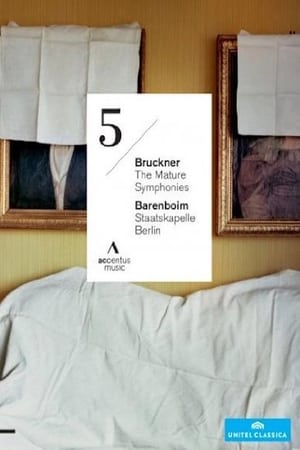 0.0
0.0Bruckner Symphony No. 5(en)
The Süddeutsche Zeitung summed up this highly acclaimed performance of Bruckner's monumental Fifth Symphony by saying: Both Bruckners belief in God, as it majestically wells up out of the chorale of the Fifth, and his deeply tragic world view, collide with one another in Barenboims interpretation. The operatic experience of the conductor was almost tangible, revealing the sheer dramatic instrumental battle between Bruckners God and the Devil between heaven and hell without betraying Bruckners unerring sense of striking proportions. The release of this contrapuntal masterpiece (as Bruckner, not without pride, referred to this work) is part of Daniel Barenboims Bruckner cycle with the renowned Staatskapelle Berlin.
 0.0
0.0Waldbühne 2010 | An Evening with Renée Fleming(de)
Repertoire Modest Mussorgsky: Night on Bald Mountain; Antonín Dvořák: Song to the Moon from “Rusalka”, Op. 114; Aram Chatschaturjan: Adagio from “Spartacus”; Richard Strauss: Final Scene from “Capriccio”, Op. 85; Richard Wagner: Overture to “Rienzi, der Letzte der Tribunen”; E. W. Korngold: Mariettas Lied from “Die tote Stadt”; Richard Strauss: Zueignung, Op. 10 No. 1; Sir Edward Elgar: Salut d’amour; Giacomo Puccini: Donde lieta uscì from “La bohème”; Tu che di gel sei cinta from “Turandot”; Ruggero Leoncavallo: Musette svaria sulla bocca viva from “La bohème”; Mimì Pinson, la biondinetta from “La bohème”; Piotr Tchaikovsky: “Romeo and Juliet” (Fantasy Overture)
 6.0
6.0Lisztomania(en)
In the 19th century, Romantic composer/pianist Franz Liszt tries to end his hedonistic ways but keeps getting sucked back in by his seductive fellow composer Richard Wagner.
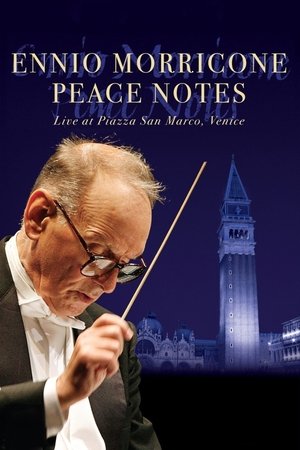 7.8
7.8Ennio Morricone: Peace Notes - Live in Venice(it)
From his impressive back catalogue as a cinematic composer, the illustrious Ennio Morricone conducts a moving and uplifting tribute to the victims of the 9/11 attacks and to all victims of unjust tragedies throughout history. Filmed in 2007 in high definition at the historic Piazza San Marco in Venice, this remarkable live performance features music from 'Cinema Paradiso', 'The Good The Bad and The Ugly', 'Once Upon a Time in America', 'Love Circle', 'The Mission' and many other timeless classics.
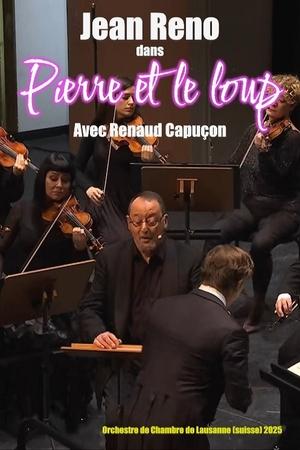 0.0
0.0Pierre et le loup : Avec Jean Reno et Renaud Capuçon(fr)
For Peter and the Wolf, premiered in 1936, Prokofiev chose the form of a symphonic tale, featuring a narrator alongside the orchestra. A unique work in which each instrument embodies a character. Renaud Capuçon conducts the Orchestre de Chambre de Lausanne, while Jean Reno takes on the role of narrator.
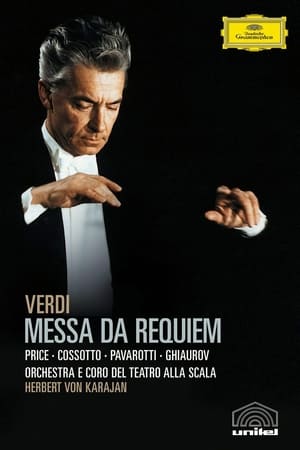 9.0
9.0Verdi – Messa da Requiem(en)
Herbert von Karajan conducts La Scala Orchestra and Chorus with soloists Leontyne Price, Fiorenza Cossotto, Luciano Pavarotti, and Nicolai Ghiaurov.
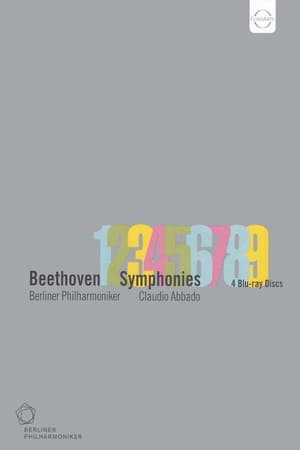 0.0
0.0Beethoven: The Symphonies(en)
Conductor: Claudio Abbado. Orchestra/Ensemble: Berlin Philharmonic Orchestra. 1.Symphony no 1 in C major, Op. 21 2. Symphony no 2 in D major, Op. 36 3. Symphony no 3 in E flat major, Op. 55 "Eroica" 4. Symphony no 4 in B flat major, Op. 60 5. Symphony no 5 in C minor, Op. 67 6. Symphony no 6 in F major, Op. 68 "Pastoral" 7. Symphony no 7 in A major, Op. 92 8. Symphony no 8 in F major, Op. 93 9. Symphony no 9 in D minor, Op. 125 "Choral"
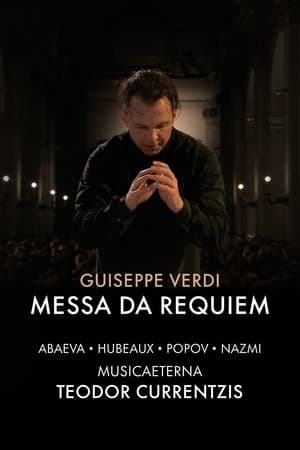 9.0
9.0Verdi: Messa da Requiem(en)
Guiseppe Verdi’s Requiem is still heard mainly in theatre and concert halls. However, the author himself intended this composition to be performed in church, and on special occasions. Conducted by Teodor Currentzis and performed by soloists and musicAeterna choir and orchestra, Verdi’s famous funeral mass returns from the concert stage to Milan’s Church of San Marco, the same place where it was premiered in 1874. The seven parts of the Requiem become steps on the way to comprehending the sacrament of death, the operatic character of orchestral and vocal writing acquires the strictness of the Catholic tradition, and musical images of rage, despair, and rebellion against the inevitable end are crowned with appeasement.
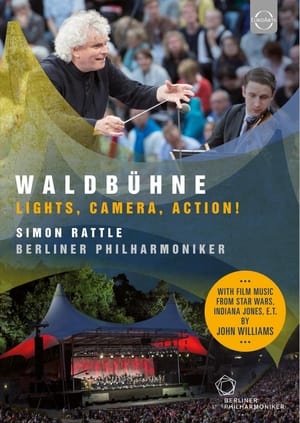 0.0
0.0Waldbühne 2015 | Lights, Camera, Action!(de)
The Waldbühne in Berlin, one of the most appealing outdoor amphitheatres on the European continent, is the home of the Berliner Philharmoniker’s summer concerts. With over 20.000 in attendance, they are some of the most popular classical music concerts in the world. In 2015 the Berliner Philharmoniker surrounded themselves with plenty of celebrities, including not only conductor Sir Simon Rattle, but also many figures from film history: Indiana Jones, Robin Hood, Ben Hur and many more. They were all brought to life musically when the orchestra performed some of Hollywood’s most famous film music. With film music from Star Wars, Indiana Jones, E.T. composed by John Williams. Live from the Waldbühne Berlin, 2015.
 0.0
0.0London Symphony Orchestra: The Young Debussy(en)
The evocative music of Claude Debussy has been described as the foundation of modern music. But how did the composer come to develop his unique style? On this video, maestro Francois-Xavier Roth and the London Symphony Orchestra present the UK premiere of a previously lost work by the young Debussy, alongside some of his earliest inspirations. Debussy's newly discovered Premiére Suite gives a rare insight into the mind of a young composer on the cusp of innovation. It's a work filled with Romantic and Eastern influences and glimpses of the unexpected harmonies that came to define Debussy's work. Paired alongside the composer's role models - from Wagner's powerful intertwining motifs, the abundant Spanish influences in Lalo's rarely-heard Cello Concerto performed here by Edgar Moreau, and Massenet's majestic Le Cid - Francois-Xavier Roth gives a fresh perspective on the much-loved composer.
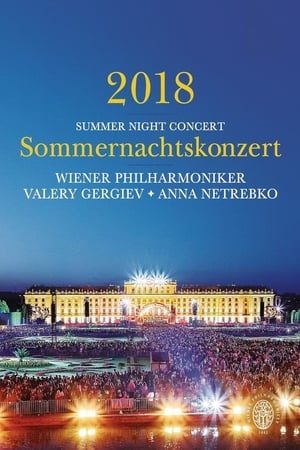 9.0
9.0Summer Night Concert: 2018 - Vienna Philharmonic(de)
The Summer Night Concert of The Vienna Philharmonic is the world's biggest annual classical open-air concert set in the magical Schönbrunn Palace Baroque park in Vienna. The concert will take place on 31 May 2018 and its theme for this year is 'An Italian Night'. The concert is broadcast on TV and radio in more than 60 countries, and thus reaches an audience of millions. The evening’s repertoire is an attractive combination of extremely popular works for orchestra including the William Tell Overture, the March from the opera Aida and the Intermezzo from Cavalleria Rusticana, as well as famous Soprano arias like Vissi d’arte, vissi d‘amore from the Opera Tosca. Valery Gergiev returns to conducts the Summer Night Concert and is joined by star Soprano Anna Netrebko in what promises to be one of the most popular concerts this year!
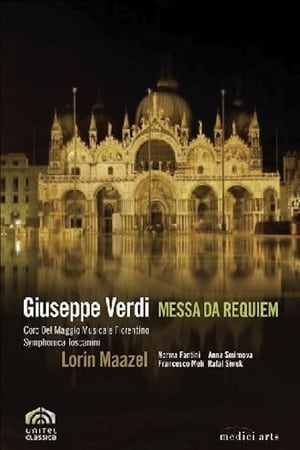 0.0
0.0Verdi Requiem(en)
The production itself is quite beautiful: recorded in the Basilica di San Marco in Venice in November 2007, it highlights the cathedral's splendor, the reverent audience, the soloists, orchestra and chorus with near-perfect cinematography. The soundtrack is also acceptable, which may have been quite a task to achieve, given the Basilica's over-reverberant acoustics. Alas, the performance itself does not rise to the occasion. Despite the occasional minor insecurity in ensemble and a visible lack of joy, the Symphonica Toscanini musicians play well, the Coro del Maggio Musicale Fiorentino members sing equally well, and the soloists are more than adequate, almost tangibly trying to excel.
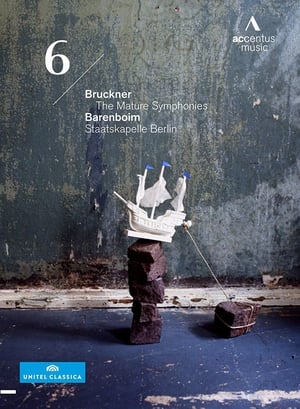 0.0
0.0Bruckner: Symphony No. 6(en)
Anton Bruckner’s 6th Symphony was written between 1879 and 1881: a very happy time in his life. Unlike most of Bruckner’s symphonies, the 6th was not revised. Of all his works, this one seems to come from a single source of inspiration. Bruckner himself called it his “boldest” symphony – probably due to its extreme degree of motivic, rhythmic and harmonic originality. This live recording of the seldom-performed 6th Symphony is the next instalment of the acclaimed Bruckner cycle by the Staatskapelle Berlin and Daniel Barenboim. Anton Bruckner Symphony No. 6 in A major (original version) Daniel Barenboim, Conductor Staatskapelle Berlin Recorded live at the Philharmonie Berlin, 22 June 2010
 0.0
0.0The Metropolitan Opera Centennial Gala(en)
In celebration of its 100th anniversary in 1983, the Metropolitan Opera hosts a four-hour performance uniting some of the world's most spellbinding opera singers and conductors. The event includes a ballet from Samson et Dalila and boasts incredible classical performances from Kathleen Battle, Plácido Domingo, Jose Carerras, Leonard Bernstein, Marilyn Horne, Leona Mitchell, Luciano Pavarotti and many more.
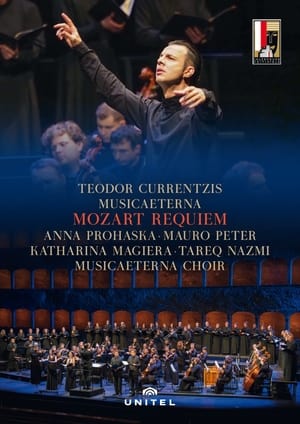 0.0
0.0Salzburg Festival 2017: Mozart, Requiem in D minor, K. 626(en)
Mozart’s Requiem – his final and unfinished masterpiece – is an extraordinary work. Discover the piece at the Salzburg Festival in the hands of conductor Teodor Currentzis, the ensemble musicAeterna, Anna Prohaska (soprano), Katharina Magiera (contralto), Mauro Peter (tenor), and Tareq Nazmi (bass). Few musical works are as steeped in legend as Mozart’s Requiem in D minor, K. 626. Commissioned anonymously by the eccentric count Franz von Walsegg, the funereal oeuvre would become Mozart’s last: when he died on December 5, 1791, only the Requiem aeternam and Kyrie movements were fully composed and orchestrated. Completed by other composers (Mozart’s student Franz Xaver Süssmayer in particular) using Mozart’s sketches and notes, the resulting work weaves the emotions we associate with death into a timeless musical exploration of every human being’s destiny, and constitutes a powerful final testament to its creator’s genius.
